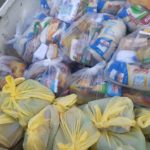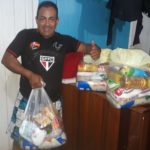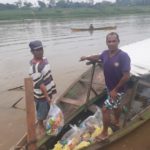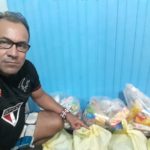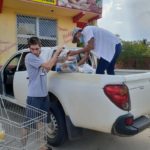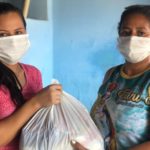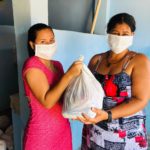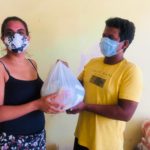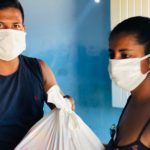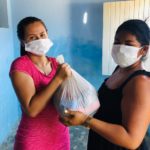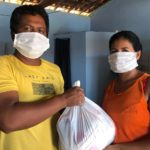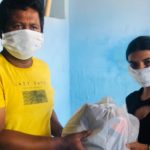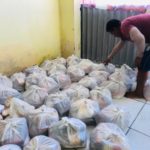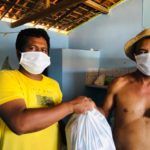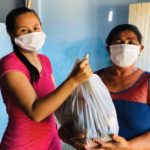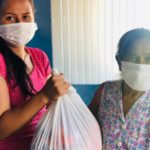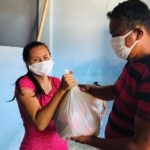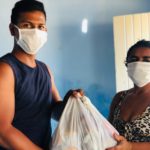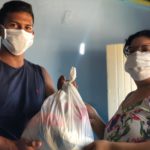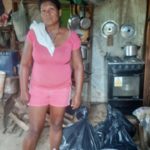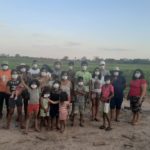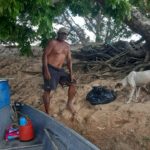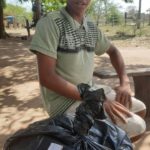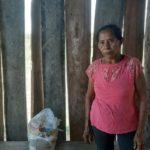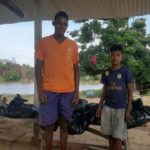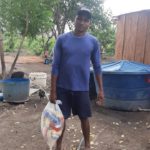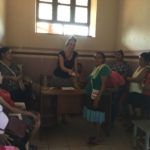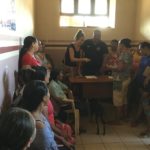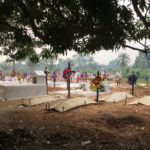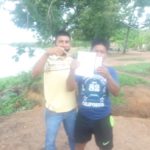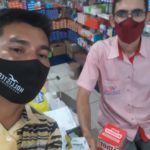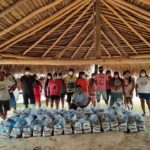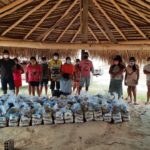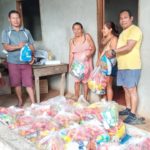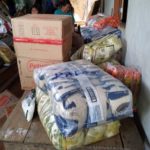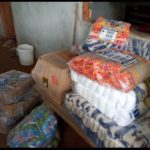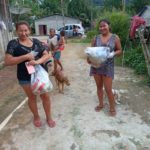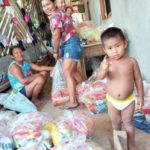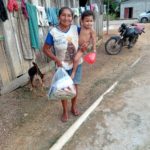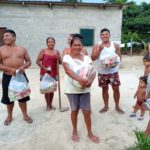Abralin launched the “Covid-19 Emergency Response Fund For Brazilian Indigenous Peoples” campaign in August 2020. The amount collected so far has been used to mitigate, in some way, the impact of the covid-19 pandemic on indigenous communities, which are the most vulnerable to contagion and account for almost 900 deaths in Brazil so far. We know that the most vulnerable among the vulnerable are the elders, guardians of languages, knowledge and memories. So far, it has been possible to respond to requests for help from 8 indigenous peoples: Apurinã, Fulni-ô, Guató-MT, Gwarayu, Jamamadi, Karajá, Paiter-Surui and Tariano. We would like to thank everyone who contributed to the campaign. The situation among indigenous peoples is still very difficult, especially now, in the second wave of the pandemic. Many communities are being affected. In this sense, please, continue to collaborate, donating whatever you can to our emergency fund, here.
Below are reports of the application of donations among the communities that have benefited:
APURINÃ AND JAMAMADI
With the amount received through a donation from the Brazilian Association of Linguistics to help reduce the effects and scope of covid-19 among indigenous peoples, the Apurinã and Jamamadi Indigenous Organization of Boca do Acre in Amazonas (OPIAJBAM) decided to purchase food baskets and hygiene products, known as sacolões, in Amazonas, and also diesel oil to transport these sacolões to the villages. 25 baskets were purchased, which were distributed among three smaller villages, which have few families, the Katispero, Ywinawa and Centrim villages. This option of purchasing food and products was the strategy designed so that people did not have to go to the cities and could remain in isolation in the villages. Marinês Santos, from OPIAJBAM, declared: “The new coronavirus, as well as other pandemics, religion, discrimination, prejudice, has caused a lot of suffering and loss to native peoples, such as among the Apurinã and Jamamadi in the region of Boca do Acre . I believe that you are aware that many of these families have as their only source of income, the agricultural products they cultivate and the handicrafts they sell. Currently, due to the pandemic, these families are instructed not to leave their villages. Here in the mouth of Acre, at least 5 indigenous lands have not been approved and neither have the studies of identification and delimitation started, a fact that unfortunately makes it attractive for the illegal exploitation of the natural resources still existing in those territories. In summary, families cannot sell their production and still witness their resources being stolen by the invaders. To do so, I must say that families do need this and other aid that can supply or at least alleviate the moment of crisis and pain ”.
FULNI-Ô
In October 2020, the Fulni-ô de Águas Belas Indians (Pernambuco) received a donation from the “Emergency covid-19 fund for Brazilian indigenous peoples”. The donation was used to purchase basic baskets for families confined in the sacred reserve of Ouricuri.
GUATÓ
ABRALIN donated a donation to the Guató Indigenous Association of the Guató People of Mato Grosso. The funds were used to purchase 23 basic food baskets (R $ 1,840.00) and fuel for transportation (R $ 560.00), in order to alleviate the impacts of the COVID-19 pandemic and the fires that devastated the Pantanal of Mato Grosso, which devastated the fields, putting the food security of the Guatemalan people at risk. Logistical support from FUNAI and the Cuiabá Indigenous Health District was essential for the donation to reach, on October 10, 2020, the benefited communities: Aldeias Aterradinho and São Benedito, TI Baia dos Guató (Municipality of Barão de Melgaço, MT) . The TI demarcation process was interrupted and is being challenged by farmers who claim to own the territory claimed by the Indians.
GWARAYU
In early December another donation was made to the Gwarayu people of Uribichá, who live in Bolivia, on the border with Brazil, and who have exchanges with Guarani relatives in Brazil. The amount was distributed among indigenous people whose families were affected by the pandemic.
KARAJÁ
The funds obtained by the Abralin campaign and directed to the Karajá Association of Aldeia Hawalò (Sta. Isabel do Morro, TO) were used primarily for the purchase of medicines. There were six deaths by Covid 19 in this village and in the small JK village nearby, the Karajá leaders of the Association decided that the funds would be applied to the purchase of medicines, having made a list that served the largest number of families, some of whom have elders suffering from diabetes, joint pain, gastric problems.
PAITER-SURUI
The funds obtained by the Abralin campaign and directed to the Sete de Setembro Indigenous Land, in the Gapgir Village of the Paiter-Suruí Indigenous People, in Rondônia, were used primarily for the purchase of food baskets and hygiene products. The Paiter-Suruí people are the most affected indigenous people to date in Rondônia, with 204 confirmed cases until mid-December 2020. After that, there was and is a new increase in the number of cases of the disease, not only among the Paiter- Suruí, but also among several other indigenous peoples in Rondônia.
TARIANO
Another donation arrived in Tariana or Tariano do Alto Amazonas at the end of November. Rafinha Brito, leader of the Tariano do Meio Rio Negro wrote to us: “we are in despair because of the contagion by Covid-19”. Her appeal was heeded. With the amount received, several basic baskets were purchased for the families of the indigenous people affected by Covid-19.
We thank Ana Vilacy Galucio, Marcus Maia, Bruna Franchetto, Swintha Danielsen, Alexandra Aikhenvald for their collaboration.

